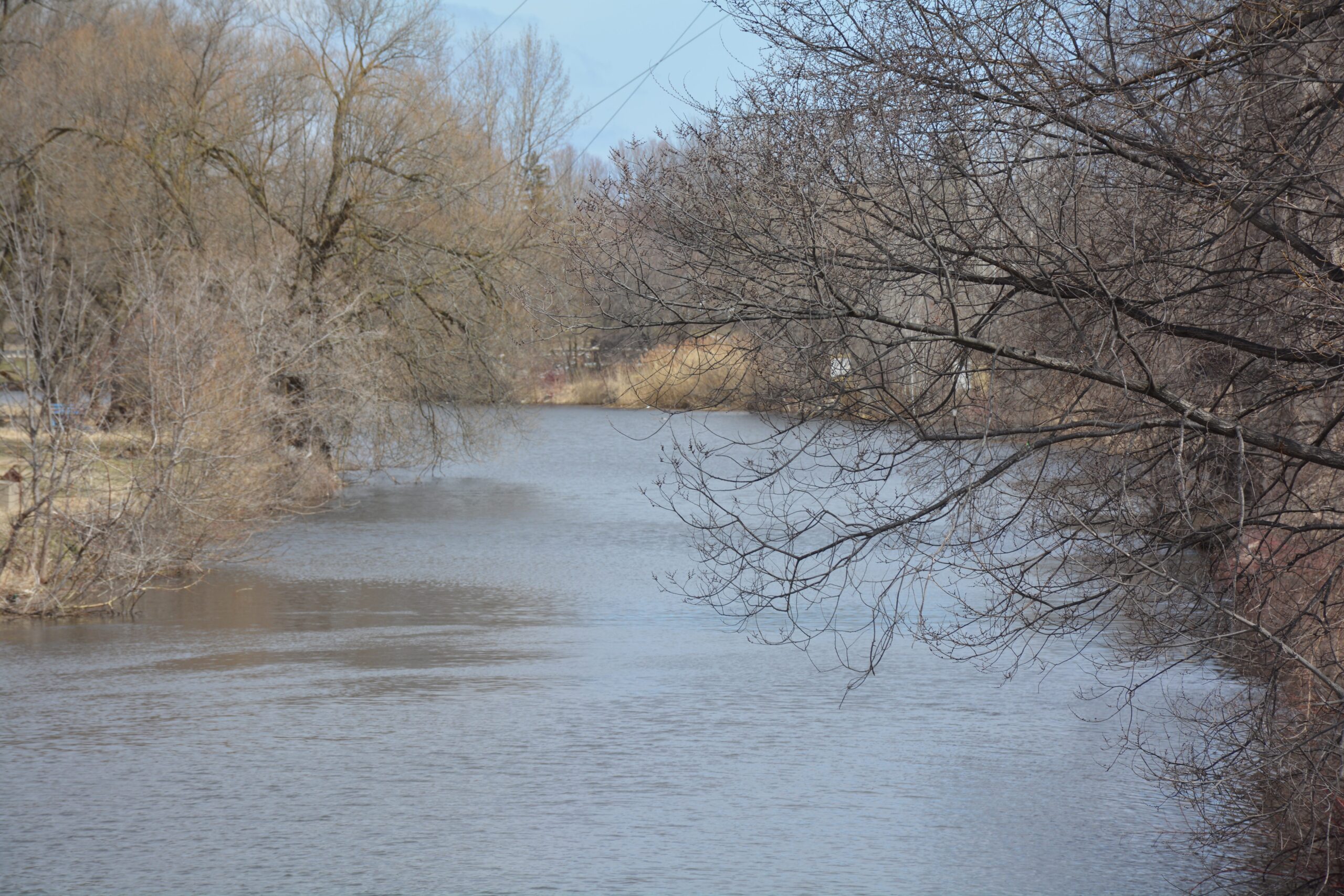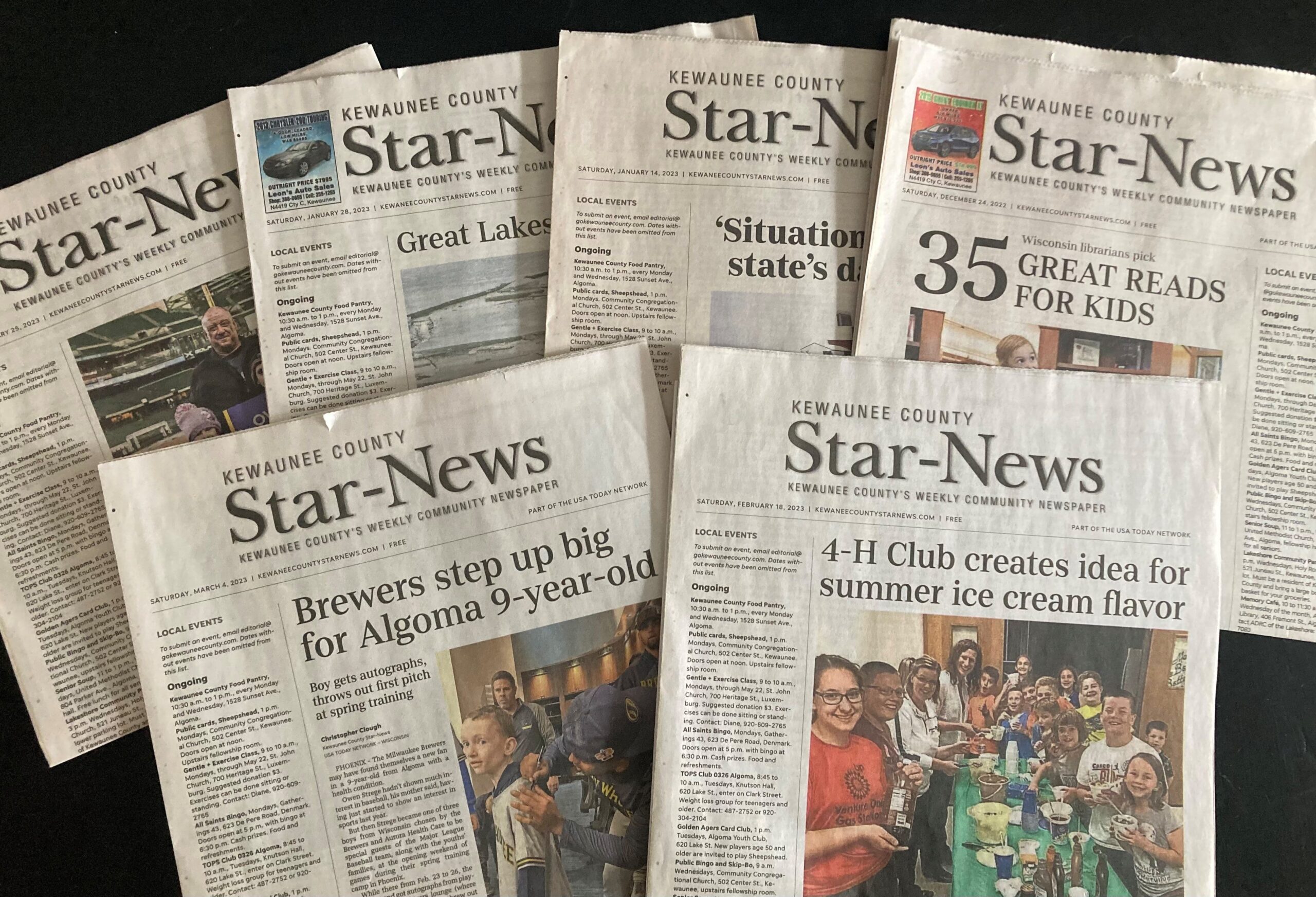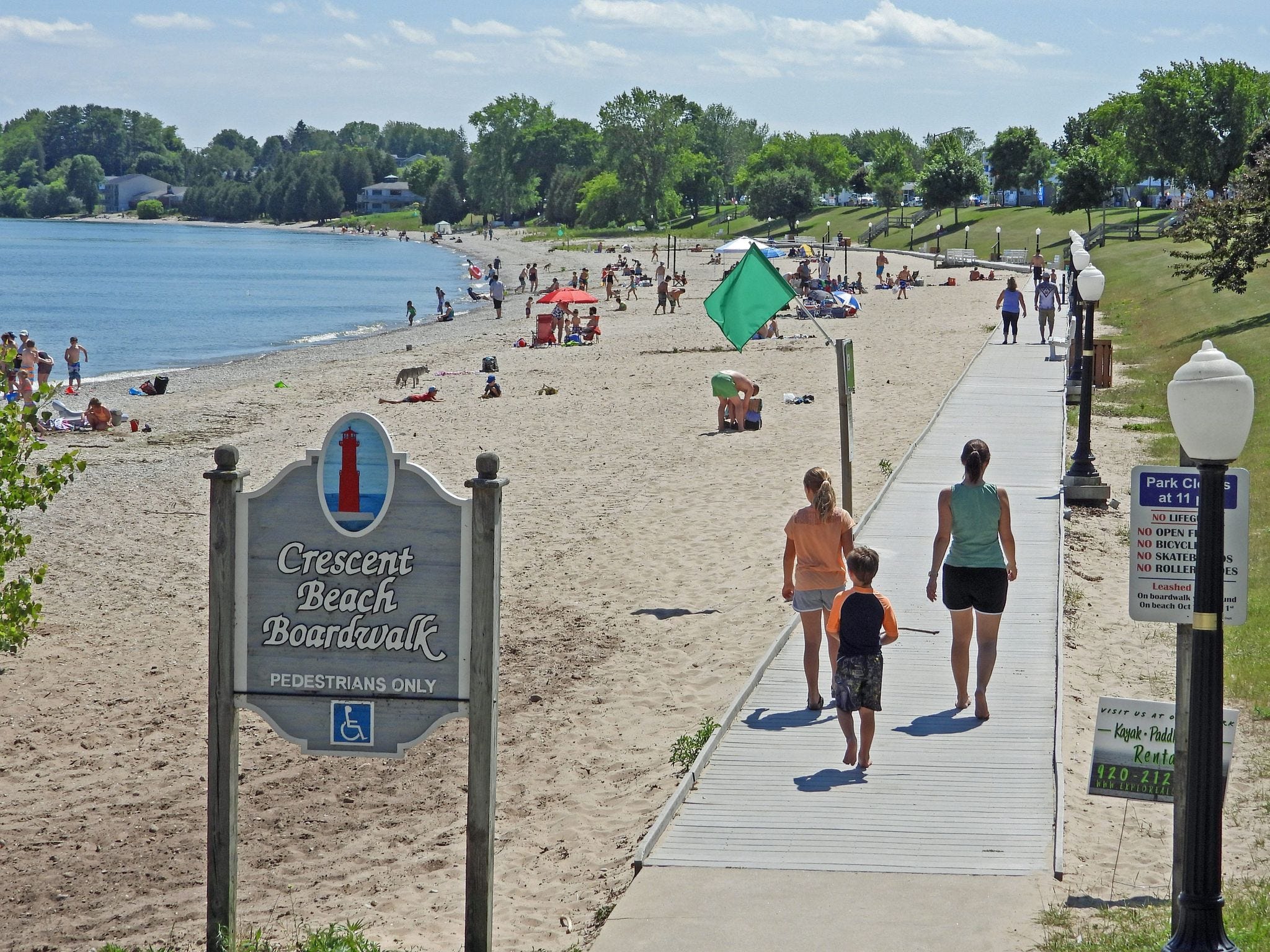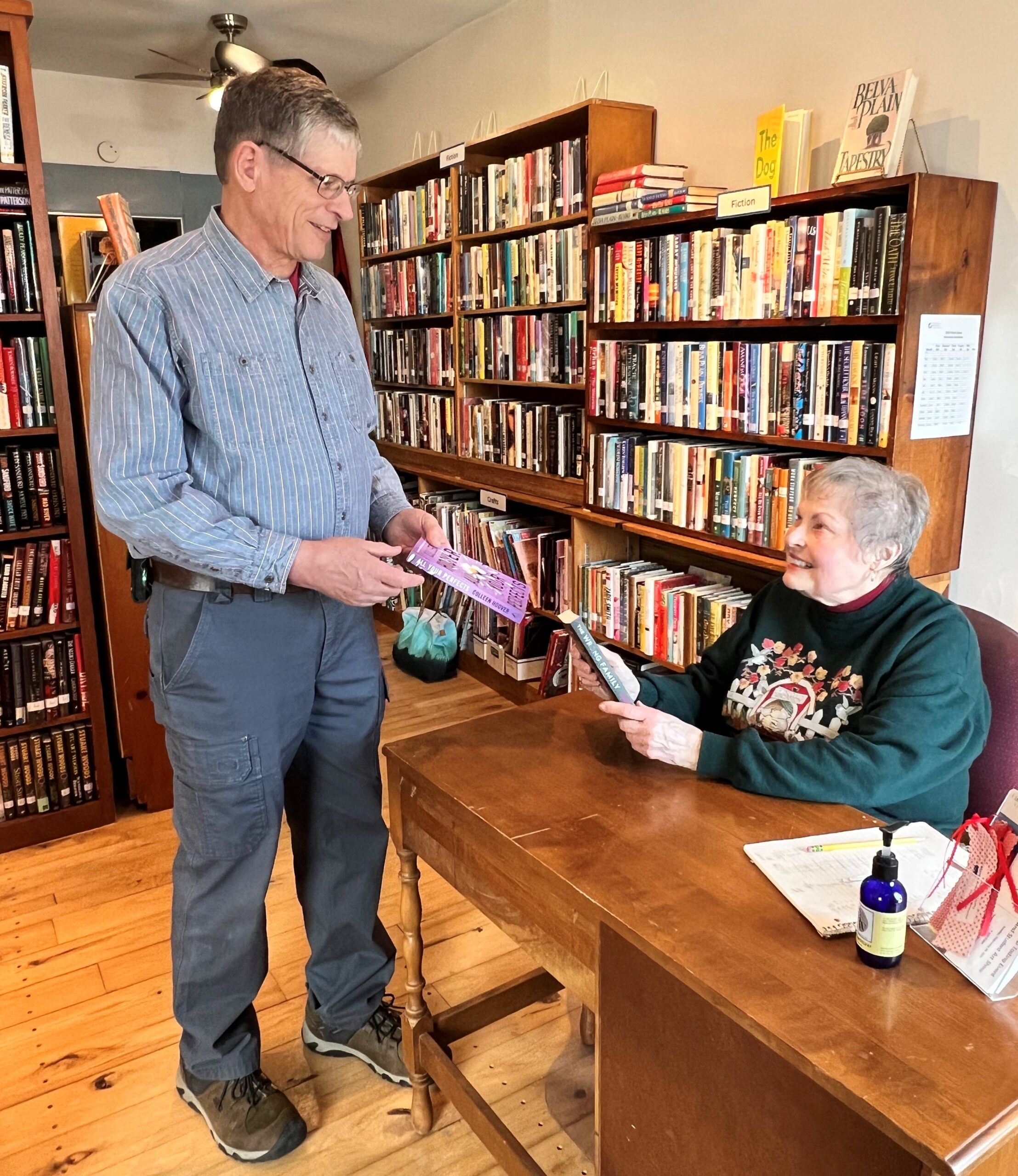Farmers join with Nature Conservancy while state reps address Ahnapee River

A group of approximately 40 farmers in Kewaunee and southern Door counties have announced that they are forming an environmental stewardship coalition that will work with The Nature Conservancy and other groups to address ground and surface water quality issues in the two counties.
The announcement came several days after three of Kewaunee County’s largest dairy farmers – John Pagel, Lee Kinnard and Don Niles – said they believed large-scale agriculture is part of the reason for the county’s groundwater problems and also that the agricultural industry is in the best position to provide a solution.
Peninsula Pride Farms, a not-for-profit group, will focus on more innovative ways to protect and improve ground and surface water through conservation practices and technology, said Niles, the owner of Dairy Dreams, a Casco-based concentrated animal feeding operation (CAFO), and a spokesperson for the group.
“Farmers by nature are innovative problem solvers,” said Niles. “We can be most effective by working toward solutions in a collaborative manner.”
Niles said Peninsula Pride Farms will promote farming methods that create measurable and sustainable improvements. A key to the initiative will be to create benchmarks for continuous improvements for individual farms that take into account the unique characteristics of each farm’s systems and environmental characteristics.
“The turnaround is that farmers are saying we can’t tackle this individually,” Niles said. “We have come to realize that we can be more effective by working collaboratively.”
The group includes small and large farmers, both livestock and crop, as well as agronomists, environmentalists and others involved in agriculture, Niles said.
John Nelson, project manager for The Nature Conservancy, is a member of Peninsula Pride Farms steering committee.
Under Nelson’s supervision, The Nature Conservancy has led efforts to improve water quality in the Sheboygan River basin and Lake Michigan.
“We work with farmers to improve tillage practices, manage manure and other nutrients, utilize cover crops and develop other innovative solutions to keep nutrients and soil on the land and out of our waters,” said Nelson.
The group also will work with Dennis Frame, who designed the country’s first Discovery Farms program and is a professor at the University of Wisconsin-Extension. In addition, Congressman Reid Ribble, who has lead an intensive collaborative effort to reduce phosphorous runoff in Green Bay, has endorsed the group.


As part of their membership, farmers’ nutrient management plans will be analyzed by Frame to identify opportunities for water quality improvements, Niles said.
He said that the group began working April 1 to began improvements in this growing season.
The focus of Peninsula Pride Farms’ initiatives in the Kewaunee/East Twin River watershed will be on surface water, phosphorus and sedimentation, while the focus in the Ahnapee River watershed will be on groundwater improvements, Niles said.
“The formation of Peninsula Pride Farms is, in my opinion, a very positive step in the direction of improved health, safety and our overall quality of life,” said Lee Luft, chairman of Kewaunee County’s Groundwater Task Force.


While farmers were joining together to address water problems caused by agriculture, Rep. Joel Kitchens, R-Sturgeon Bay, and Rep. Scott Krug ,R-Nekoosa, were meeting March 31 with approximately 50 local citizens and farmers in Algoma to discuss initial steps to reduce pollutants in the Ahnapee River, which is listed on the EPA’s Impaired List for excess phosphorus.
In opening the meeting, Kitchens said that he would be asking for approximately $200,000 in the state’s next budget cycle to do a Total Maximum Daily Load (TMDL) study of the river’s watershed. A TMDL is a pollution budget and includes a calculation of the maximum amount of a pollutant that can occur in a watershed and allocates the necessary reductions to one or more pollution sources.
Kitchens also said that he has asked for a Legislative Council Study Committee to build upon the recommendations developed by DNR work groups to address water issues in the two counties. The work groups have been meeting since 2015 and recently completed their recommendations to begin solving ground and surface water problems.
“At the end of each legislative session, they (the Legislative Council Study Committee) take on only a few such projects and their work is given high priority by the Legislature,” Kitchens said.
Kitchens noted that the committee would be bipartisan and would bring together top scientists, conservation staff, interest groups and legislators with the goal of creating legislation for the session next winter.
Krug, whose district includes parts of Waushara, Portage, Adams and Woods counties, said runoff is currently one of the biggest state issues and that blue-green algae is present in rivers and lakes throughout Wisconsin.
“I hear from people every day on this issue,” he said.
Krug told the audience how he has worked with a number of government agencies and citizen coalitions in the Central Sands area and the Wisconsin River watershed to help reduce pollutants from agriculture and other sources.
Several citizens at the meeting told Krug that Kewaunee County has more manure than its land could absorb, but Krug said that CAFOs were not going to disappear and it was difficult to gain support for efforts to limit cow herds.
“The mantra will be for America’s Dairyland, whatever the party,” Krug said.
The representatives said that it was up to county boards to determine if an ordinance should be passed to limit cows in a county, such as in areas like Kewaunee and Door counties where karst topography made ground and surface water more vulnerable to pollution from cow manure.
“We can’t do it at the state Legislature,” Kitchens said.
Kitchens noted that Kewaunee County’s water issues were receiving state government’s attention. The DNR has added staff in the county to deal with groundwater issues and he has requested that a warden be hired for the county, and the DNR is working to fill that position, Kitchens said.
Kitchens said that last summer a group of state legislators were invited to fish for salmon in Algoma so that they could see the water issues here. He said getting approval for state legislation aimed at solving local problems was difficult unless the legislators had actually witnessed the problems first-hand.
“As a result, Kewaunee County’s profile has been raised around the state,” said Kitchens.
William Faller, a retired doctor in the audience, said that Kewaunee’s county board could address many of its water issues by adopting La Crosse’s ordinances regarding soil health.
Citizens noted that several studies had already been done of the Ahnapee River and that they hoped that the TMDL study would achieve results in reducing pollution.
Kitchen said that the study would have the Environmental Protection Agency’s backing. Citizen participation could help reduce the estimated 3-5 years it would take to complete the study, he said.
“I want people to feel positive about things and work toward a solution,” Kitchens said.
The meeting was sponsored by the Friends of Crescent Beach.
Karen Ebert Yancey can be reached at [email protected], on Facebook at Kewaunee County Star News Facebook, on Twitter at @EbertYancey or by calling 920-559-1235.
This article originally appeared on Green Bay Press Gazette: Farmers join with Nature Conservancy while state reps address Ahnapee River






